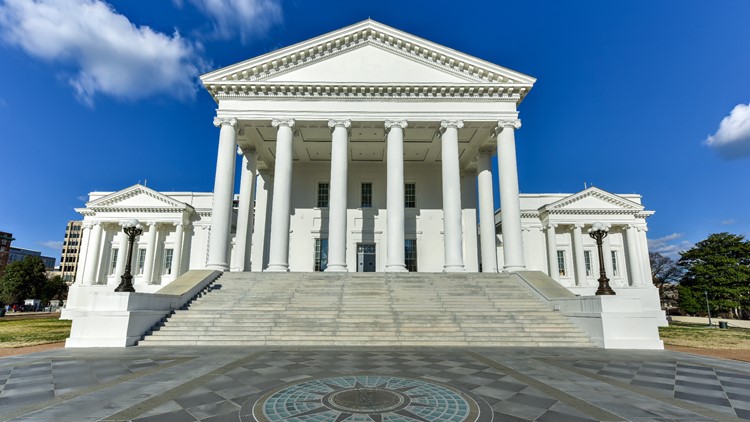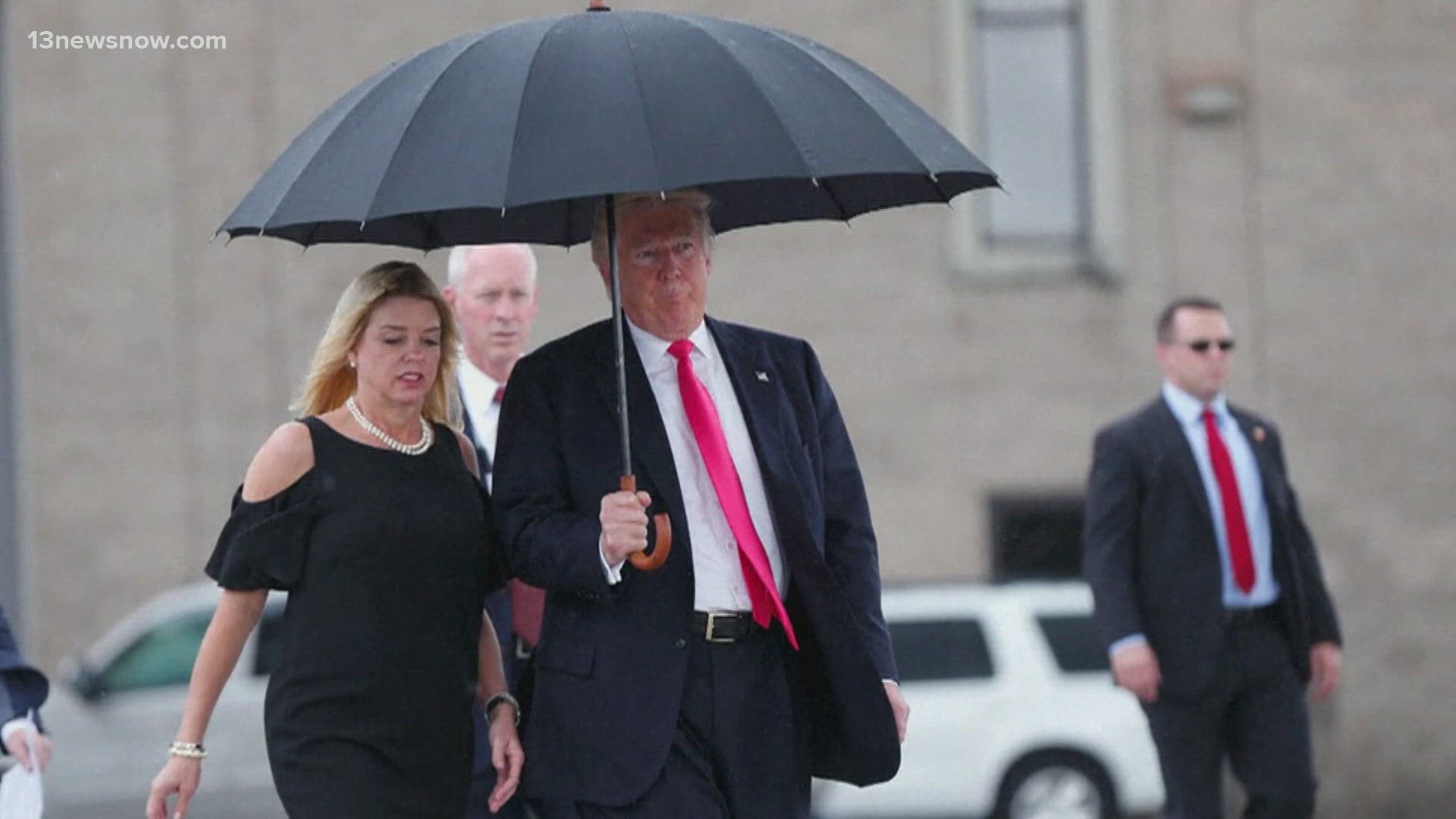RICHMOND, Va. — Virginia's divided General Assembly passed a compromise state budget Wednesday that would offer nearly $4 billion in tax relief, increase pay for teachers and other public employees, boost K-12 education spending and fund a wide range of projects from roadwork to school construction.
Budget negotiators crafted the measure at a time when Virginia's tax revenues have been soaring far beyond projections. That allowed for making long-term investments in core government services while also boosting the state's reserves and enacting tax cuts that are expected to save a family of four an estimated $1,108 a year, Republican House Appropriations Chairman Barry Knight said.
“It’s been a long haul, but I believe the result is a fiscally sound, bipartisan budget we can all be proud of,” he said.
The proposed spending plan, which covers two fiscal years and would take effect July 1, passed with broad bipartisan support and relatively subdued debate. Lawmakers also passed a bill making adjustments to the current budget.
The legislation now goes to GOP Gov. Glenn Youngkin, who can sign it or seek changes. He said in a statement earlier this week that the compromise offered a “good framework” and that he would be reviewing it closely in the days to come.
Lawmakers had to return to the Capitol in a special session to finish the budget because they deadlocked over the spending plan as their regular calendar drew to a close in March. They opted then to extend the talks, which have been happening privately among a handful of negotiators. Some lawmakers criticized the opacity of the process on Wednesday.
Youngkin, who campaigned on a promise to enact a broad slate of tax cuts, had been calling on lawmakers for weeks to act with urgency. A deal was announced Thursday.
The two-year budget includes many, but not all, of the tax cuts the governor pushed for.
It directs about $1 billion in tax relief toward one-time rebates of $250 for individuals and $500 for families, which would be distributed later this year. About $1.6 billion would go toward increasing the standard deduction — but not quite doubling it as Youngkin sought.
About $372 million in tax relief would eliminate the state portion of sales tax on groceries and essential personal hygiene products; $301 million would provide phased-in income tax relief for military retirees 55 or older; and $315 million would make the Virginia Earned Income Tax Credit partially refundable.
The plan does not include a gas tax holiday, another priority of the governor's.
The budget would boost pay for teachers, state employees and state-supported local employees. It would allocate $100 million for a Youngkin-backed initiative to partner colleges with K-12 systems to create lab schools, and would direct hundreds of millions toward school construction and modernization. According to appropriations committee documents, it marks the largest-ever K-12 education budget, spending $19.2B over the biennium, a 20% increase from the previous budget cycle.
The spending plan would also allocate hundreds of millions to support the widening of Interstate 64 between Hampton Roads and Richmond and create a new intermediate misdemeanor penalty for possession of more than 4 ounces but not more than 1 pound of marijuana.
The General Assembly did not take up one of the year's most controversial issues Wednesday — a bill that would offer lucrative tax incentives to the NFL's Washington Commanders in an effort to lure the team to Virginia. Senate Majority Leader Dick Saslaw, one of the measure's sponsors, said Tuesday that a compromise version had not been finalized yet. Lawmakers can return to the issue later.
The team is in the midst of a long-running search for a new stadium site, and Maryland, Virginia and the District of Columbia have all been under consideration. The stadium bill initially passed with broad, bipartisan support, but some members have since raised concerns about the size of the incentives and the various controversies swirling around the Commanders.
Virginia’s attorney general announced in April that his office had launched an inquiry into the team following allegations of financial improprieties raised by a congressional committee. The team has denied any wrongdoing.
Lawmakers elected two judicial candidates for general district court positions Wednesday. But they still have not scheduled a vote on two state Supreme Court vacancies or an opening on the powerful State Corporation Commission. House Republicans and Senate Democrats remain at odds over how much sway each should have in the picks and any subsequent vacancy that might be created in a lower court if a judge were promoted.
Also Wednesday, House Democrats elected a new caucus leader, selecting attorney and two-term member Don Scott from Portsmouth. The decision came after the 48-member group ousted minority leader Eileen Filler-Corn in April over simmering dissent about an unsuccessful election cycle that saw the party lose full control of the state government.
Scott told reporters it was an honor to be chosen by his peers and vowed to be a collaborative leader who would push back against Youngkin's agenda and help Democrats retake control of the chamber in the next election cycle. All House and Senate seats are scheduled to be on the ballot in 2023, although a pending lawsuit seeks to force House elections again this year. That's because the last cycle was held under old legislative boundaries as a result of delays in the redistricting process.



